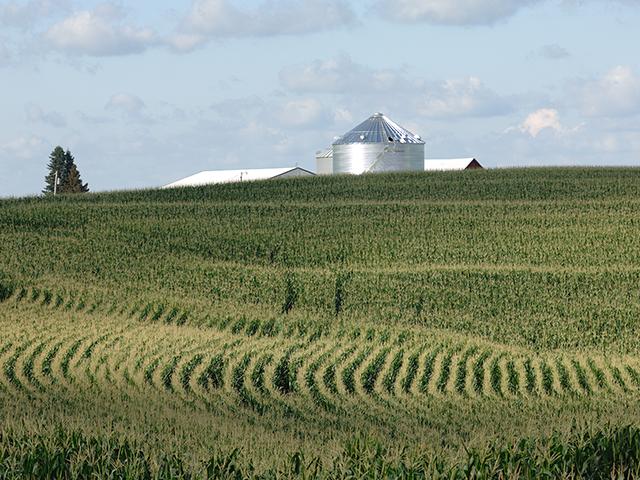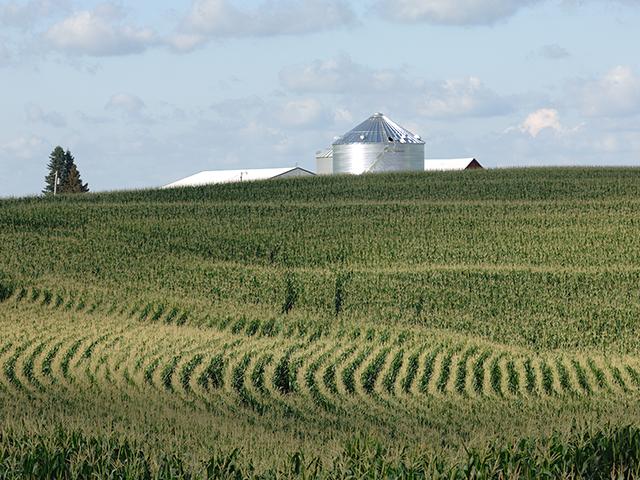Ag Policy Blog
Breaking Down the Latest Report on Foreign Ownership of US Farmland
Attacks on foreign investors didn't stop them from expanding their acreage holdings in the U.S. in 2022, according to the latest USDA report on foreign land ownership.
In 2022, foreign investors acquired more than 3.4 million acres of land, and now hold interest in more than 43.4 million acres of agricultural land, which is considered both forests and farm ground. That equates to about 3.4% of all privately held agricultural land in the U.S.
Foreign investment in U.S. agricultural land has become more attractive in the past six-plus years. Since 2017, foreign land holdings in the U.S. have increased between 2.4 million acres and more than 3.4 million acres annually. In the five years before 2017, foreign land acquisitions averaged around 600,000 acres per year.
States with most foreign-owned land (rounded):
Texas, 5.4 million acres
Maine, 3.5 million acres
Colorado, 2.5 million acres
States with largest foreign agricultural land purchases in 2022:
Colorado, 557,000 acres
Alabama, 514,000 acres
Michigan, 461,000 acres
Timber or forest land makes up nearly 21 million acres, or 48.3% of the foreign-interest land, followed by crop land at 12.28 million acres, or 28.3%, and pasture at 9.2 million acres, or 21.3%.
Over the past year, Congress has moved to ban ownership by certain countries, including China, Russia, North Korea and Iran, though those bills have not passed into law. Congress also has sought to change how USDA collects its data on foreign ownership and provide better USDA reporting on the issue.
P[L1] D[0x0] M[300x250] OOP[F] ADUNIT[] T[]
COUNTRIES WITH MOST US LAND
Canadian investors own 14.2 million acres in the U.S. of both agricultural and non-agricultural land, or about 32% of all foreign holdings. Netherlands owns 12%, followed by Italy and United Kingdom each with 6% and Germany with 5%. Combined, those four countries have about 13 million acres. The remaining 17.1 million acres is held by various other countries.
USDA cited some issues with its forms. For instance, if investors from multiple countries are listed on FSA-153 form, and the primary shareholder country cannot be determined, the form lists, "no predominate country. Any acreage from any country should be viewed as the minimum acreage and the interest of certain countries would be under-represented.
CHINESE OWNERSHIP
Over the past year, a major focus on policy has been Chinese ownership of farmland. Multiple states have passed legislation requiring the reporting and event the sale of land owned by Chinese entities. Arkansas, for instance, ordered Syngenta Seeds to $280,000 fine and sell 160 acres for failing to file paperwork on a piece of farm ground.
Chinese ownership of U.S. agricultural land is 349,442 acres as of Dec. 31, 2022, down from 2021. USDA had a footnote in its report that it had incorrectly overstated Chinese ownership by roughly 27,000 in the 2021 report.
The report had more detail breaking out Chinese ownership. Five companies, for instance, account for 86% of Chinese acreage in the U.S. There are no filings directly from the Chinese government.
Those five companies include:
Brazos Highland Properties LP, 102,345 acres
Murphy Brown LLC (Smithfield Foods), 97,975 acres
Murphy Brown of Missouri (Smithfield Foods), 42,716 acres
Harvest Texas LLC, 29,705 acres
Walton International Group Inc., 29,437 acres.
The states with the largest holdings, accounting for 85% of Chinese-owned acreage, include:
Texas, 162,167 acres
North Carolina, 44,776 acres
Missouri, 43,071 acres
Utah, 32,447 acres
Virginia, 14,382 acres
More detail and full access to the foreign-land holdings report can be found here: https://www.fsa.usda.gov/…
Chris Clayton can be reached at Chris.Clayton@dtn.com
Follow him on X, formerly known as Twitter, @ChrisClaytonDTN
(c) Copyright 2023 DTN, LLC. All rights reserved.






Comments
To comment, please Log In or Join our Community .